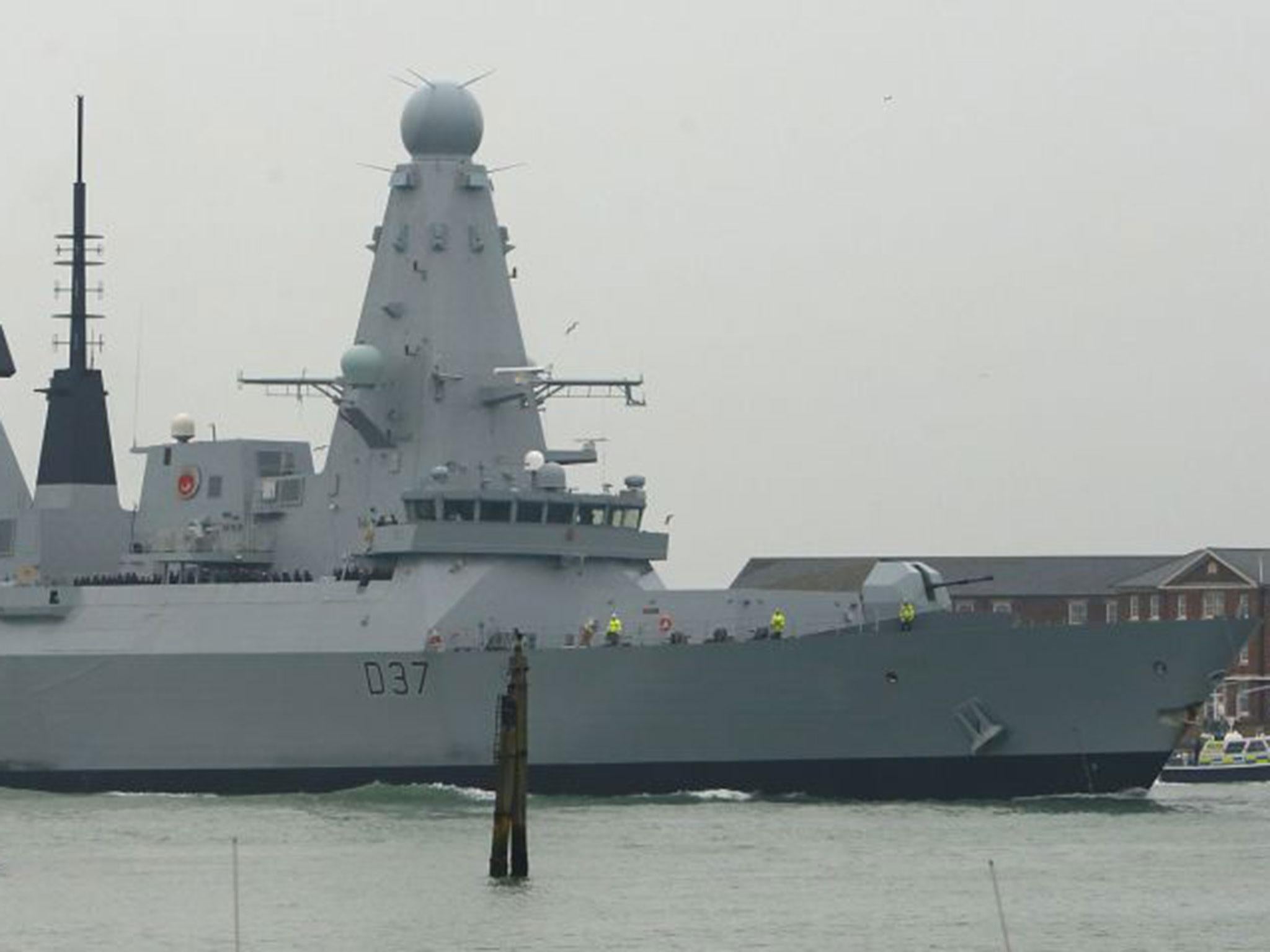Royal Navy's £1bn warship needs tow home after just two days at sea
The Royal Navy's expensive Type 45 vessels have been plagued with mechanical difficulties

Your support helps us to tell the story
From reproductive rights to climate change to Big Tech, The Independent is on the ground when the story is developing. Whether it's investigating the financials of Elon Musk's pro-Trump PAC or producing our latest documentary, 'The A Word', which shines a light on the American women fighting for reproductive rights, we know how important it is to parse out the facts from the messaging.
At such a critical moment in US history, we need reporters on the ground. Your donation allows us to keep sending journalists to speak to both sides of the story.
The Independent is trusted by Americans across the entire political spectrum. And unlike many other quality news outlets, we choose not to lock Americans out of our reporting and analysis with paywalls. We believe quality journalism should be available to everyone, paid for by those who can afford it.
Your support makes all the difference.A £1bn Royal Navy warship had to be towed back into port after it developed “technical issues” after just two days at sea.
HMS Duncan was tugged into Plymouth under escort on Wednesday, 48 hours after it set sail from a naval base in the town.
Members of the public observing from the shore said the ship appeared to have lost all power and was totally reliant on the tow.
HMS Duncan is one of six Type 45 vessels commissioned by the Ministry of Defence at a cost of £1bn each – and were bought on the premise that they would not require serious mechanical work for at least 25 years.
But the ‘Daring-class’ ships’ engines have been fraught with problems since their introduction and all six are scheduled for repairs.
In particular, the vessels have had difficult operating continuously in warm climates.
“It is astonishing that the specification for the Type 45 did not include the requirement for the ships to operate at full capacity – and for sustained periods – in hot regions such as the Gulf,” the defence select committee said of the ships earlier in November.
“The UK’s enduring presence in the Gulf should have made it a key requirement for the engines. The fact that it was not was an inexcusable failing and one which must not be repeated,” it added.
“Failure to guarantee this would put the personnel and ships of the Royal Navy in danger.”
The committee has also criticised the UK’s “woefully low” number of vessels, which it said left the UK vulnerable and unable to fulfil its Nato commitments.
Between 2023 and 2035, it is expected the navy will lose one vessel a year and the MPs raised doubts about the government’s commitment to have them replaced.
The MP’s comments came as former senior military figures strongly criticised the state of the Britain’s defences.
Lord Boyce, an independent crossbencher who served as chief of the defence staff from 2001 to 2003, argued that the UK's forces were "shrinking" and that the Government's Strategic Defence and Security Review was “not fit for purpose.”
Former head of the Royal Navy Lord West of Spithead also challenged the Government over Britain's military strength and urged a review of the nation's capabilities, which he said had been "suffering death by a thousand cuts".
Join our commenting forum
Join thought-provoking conversations, follow other Independent readers and see their replies
Comments